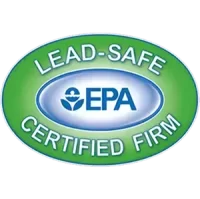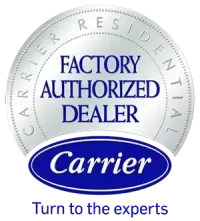Understanding When Your Water Heater Needs Replacement
Water heaters are essential components of your home’s comfort system, working tirelessly behind the scenes to provide hot water for showers, dishwashing, laundry, and countless other daily tasks. In St. Charles, IL, where winters can be particularly harsh and demand for hot water increases significantly, having a reliable water heater becomes even more critical. Most homeowners don’t think about their water heater until problems arise, but understanding the signs of failure can save you from unexpected cold showers and potential water damage.
The average water heater lifespan ranges from eight to twelve years for traditional tank models, though this can vary based on water quality, usage patterns, and maintenance history. St. Charles residents dealing with hard water conditions may experience shorter equipment life due to mineral buildup and sediment accumulation. When your water heater approaches this age range, watching for warning signs becomes crucial. These indicators include rusty or discolored water, strange noises like rumbling or popping sounds from the tank, visible corrosion on the unit, water pooling around the base, and inconsistent water temperatures or reduced hot water supply.
Types of Water Heaters Available for St. Charles Homes
Selecting the right water heater for your home involves considering various factors including household size, hot water usage patterns, available fuel sources, and energy efficiency goals. At Energy Services Air Conditioning and Heating Company, we’re proud to provide the best in HVAC and indoor air quality services to residential customers throughout Chicago and the surrounding communities. Our expertise extends to helping you choose between different water heater technologies that suit your specific needs and budget.
Traditional storage tank water heaters remain the most common choice, offering capacities ranging from 30 to 80 gallons. These units continuously heat and store water, ensuring immediate availability when you turn on the tap. Natural gas models typically cost less to operate than electric versions in the St. Charles area, though installation requirements differ. Tankless water heaters, also known as on-demand systems, heat water only when needed, eliminating standby energy losses and providing endless hot water supply. These units require higher upfront investment but offer significant long-term energy savings, typically reducing water heating costs by 24 to 34 percent for average households. Heat pump water heaters represent another energy-efficient option, using electricity to move heat from surrounding air into the water rather than generating heat directly, achieving efficiency levels two to three times higher than conventional electric resistance water heaters.
The Water Heater Replacement Process
Replacing a water heater involves multiple steps requiring professional expertise and proper equipment. The process begins with a comprehensive assessment of your current system, including evaluation of existing plumbing connections, gas lines or electrical circuits, venting requirements, and available space. Our technicians examine your home’s hot water demands, considering factors like the number of bathrooms, frequency of simultaneous use, and any special requirements such as large soaking tubs or multiple shower heads.
Once we determine the appropriate replacement unit, the installation process starts with safely disconnecting and draining your old water heater. This step requires careful attention to avoid water damage and proper handling of potentially hot water. The old unit’s removal must comply with local disposal regulations, particularly important given environmental considerations for older models that may contain specific materials requiring special handling. Installing the new water heater involves precise positioning to ensure proper drainage and accessibility for future maintenance. Gas models require verification of adequate combustion air supply and proper venting to safely exhaust combustion gases outdoors. Electric models need confirmation that your electrical panel can support the unit’s power requirements, sometimes necessitating circuit upgrades. All connections must meet local building codes and manufacturer specifications, including installation of required safety devices like temperature and pressure relief valves, thermal expansion tanks when necessary, and proper insulation of hot water pipes.
Energy Efficiency Considerations and Cost Savings
Water heating accounts for approximately 18 percent of residential energy consumption, making efficiency improvements particularly valuable for St. Charles homeowners looking to reduce utility bills. Modern water heaters incorporate advanced features that significantly improve performance while reducing operating costs. These innovations include improved insulation reducing standby heat loss, electronic ignition systems eliminating pilot light energy consumption, and advanced heat exchangers maximizing energy transfer efficiency.
- Energy Factor ratings: Compare different models using this standardized efficiency metric
- First Hour Rating: Determines how much hot water the unit can deliver during peak demand
- Recovery rate: Indicates how quickly the unit can reheat water after depletion
- Smart controls: Enable scheduling and remote monitoring for optimal operation
Whether you need to find the right HVAC system for a new home or want to have maintenance completed on your current system, you can count on us to provide honest assessments and quality solutions. Understanding total ownership costs involves considering both initial investment and long-term operating expenses, including potential utility rebates and tax incentives available for high-efficiency models.
Maintenance Tips for Maximizing Water Heater Lifespan
Proper maintenance significantly extends water heater life and maintains optimal performance. Annual professional inspections identify potential issues before they become major problems, while regular homeowner maintenance tasks help preserve efficiency. Flushing the tank annually removes sediment buildup that reduces heating efficiency and accelerates tank corrosion. Testing the temperature and pressure relief valve ensures this critical safety device functions properly. Checking and replacing the anode rod every three to five years provides continued corrosion protection for the tank interior.
St. Charles water quality characteristics make certain maintenance tasks particularly important. The region’s moderately hard water accelerates mineral accumulation, requiring more frequent flushing and potentially benefiting from water softening systems. Setting appropriate water temperature, typically 120 degrees Fahrenheit, balances comfort with energy savings while reducing scalding risk and minimizing mineral precipitation. Insulating exposed hot water pipes reduces heat loss during distribution, particularly important in unconditioned spaces like basements or crawl spaces common in St. Charles homes. These preventive measures, combined with professional service when needed, ensure your water heater investment provides reliable service throughout its expected lifespan while maintaining peak efficiency and performance levels that keep your energy costs manageable.










